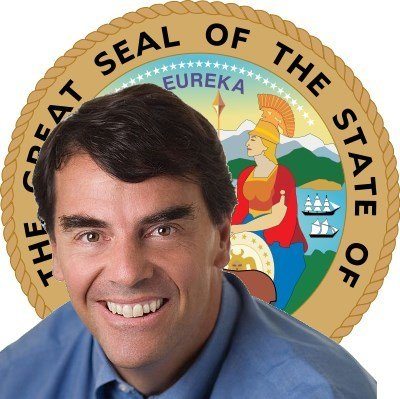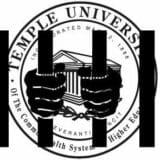LATEST NEWS


Public-private partnerships (P3s) deserve scrutiny before contracts are signed, and that principle is made clear in a recent four–part series by Len Boselovic of the Pittsburgh-Post Gazette (full disclosure: I was interviewed for and am quoted in the series.)
It is not in dispute that America is in great need of updates to our crumbling infrastructure. In 2013, the American Society of Civil Engineers (ASCE) issued a report card that gave the nation’s infrastructure an embarrassing grade of “D+” based on unmet needs to repair and rebuild roads, bridges, drinking water and wastewater systems, schools, rail and transit systems, and public parks. ASCE also estimates that the US needs to spend $3.6 trillion in the next seven years to recover from decades of neglect and divestment.
Public-private partnerships use private capital from investors to finance public infrastructure projects.
» Read more about: Infrastructure: Public-Private Partnerships Must Be Two-Way Streets »


Los Angeles County’s car wash workers seemed to face overwhelming odds when they began to organize a few years back. Carwasheros considered themselves lucky if their bosses simply paid them for the correct number of hours they had worked, let alone if they received the legal minimum wage – some were expected to work for only tips. Many car wash employees were undocumented immigrants in an industry known for its high turnover and were counted as among society’s most vulnerable workers.
And yet, with the help of the United Steel Workers union’s CLEAN Car Wash Campaign, car washers began to prevail in a series of court battles that resulted in owners being ordered to improve working conditions and to conduct their accounting practices above-board. In 2012 the state’s Department of Industrial Relations assessed more than $4.8 million in wages and civil penalties against California car wash owners,


Imagine being a waste worker sorting through trash for recyclables with only tattered gardening gloves and being pricked by a used hypodermic needle. Under the current conditions of many recycling companies, you would be told, “Get back to work” and simply have to bandage your wound – sometimes with pieces of paper from a pile of trash. And if you tried to talk with your boss about your fear of spreading illness from the needle to your family or friends, you are immediately fired. This is a true story of a former trash sorter – who was also considered a temporary employee – at a trash sorting facility in Los Angeles.
This story – of gross negligence and denial of company responsibility for basic worker health and safety protections – is too common a reality in low-wage industries. Bill Raden and Gary Cohn covered the plight of temporary workers in the food processing industry in a Capital &
» Read more about: New California Bill Will Dispose of Abuse of Temp Sanitation Workers »


A controversy surrounding the Los Angeles Unified School District’s (LAUSD) compliance with California’s contentious Parent Trigger law has apparently opened up a rift between key allies responsible for passing the state’s so-called Parent Empowerment Act.
LAUSD’s decision to grant itself a year’s recess from the 2010 trigger law’s provisions came to light only last week when its author, former state Senator Gloria Romero, leaked a letter from an LAUSD lawyer claiming that, as part of a two-year waiver it received in 2013 from the federal Department of Education, the district is not subject to the Parent Trigger law through the 2014-2015 school year. The law allows parents to take over low-performing public schools and replace faculty with non-unionized teachers under the management of private charters.
That waiver, which was granted last November but only announced August 5 by U.S. Secretary of Education Arne Duncan, frees LAUSD and seven other state school districts from penalties connected to not meeting a 2014 deadline for 100 percent math and reading proficiency mandated by the George W.


Four years ago I retired from active ministry in the United Methodist Church. My wife Susan and I now live a comfortable, middle-class life based upon the three pillars of retirement. We both receive Social Security. We get a monthly check from my pension plan. We hold some savings. But that’s not true for most Americans.
Yes, retiring workers can look forward to Social Security if they have paid into it. But that automatically excludes some. Government employees, for example, get pensions, but not Social Security. Undocumented workers may have the Social Security tax deducted from their paychecks, but the funds likely go to an account that does not bear their names – therefore, they will not get those payroll taxes returned to them when they age into eligibility.
Besides, Social Security was from the beginning expected to provide supplemental income only, not the sole basis for a livelihood.


(Note: The following opinion piece was written by a single mother of two children who fears losing her job. For this reason her name has been withheld.)
What does “Made in America” mean to you? For consumers, it means a quality product. For workers, it means a good paying job and an opportunity to achieve the American Dream. Yet “Made in America” can also stand for opportunity to exploit workers under harsh conditions and unfair wages. That’s what it means in the manufacturing plant where I work in Commerce.
I’ve worked three years for Huhtamaki, a Finnish-owned packaging manufacturer located in the Los Angeles area. We make ice cream containers and other products for Walmart. And the job, it’s just not what people are talking about when they talk about investing in new manufacturing jobs in our country.
As a single mother of two, making ends meet is hard.


In a scene right out of Orange Is the New Black, 1,000 inmates at the Ohio Reformatory for Women in Marysville, Ohio dumped their food in protest last week after maggots were found in the kitchen and dining areas. The prison’s food service program had been outsourced to the massive Aramark corporation.
Maggots have also been discovered in seven other prisons around the state – and Aramark runs the food service programs in all of them. Last month, maggots were discovered in two Michigan prisons where Aramark also runs the food service programs. The Philadelphia, PA-based corporation hasn’t taken responsibility, and officials in both states are sticking by the vendor, responding with small fines instead of canceling the contracts. Ohio fined Aramark $270,000 and Michigan Governor Rick Snyder fined the company a mere $200,000.
» Read more about: Outsourcing: Maggots on Aramark’s Prison Menu »


On Wednesday grocery shoppers at Food 4 Less stores throughout the Southland were met with smiles, picket signs and a message from the supermarket chain’s employees and supporters: Please don’t shop at Food 4 Less until its parent company, Kroger Company, signs a new union contract.
The most recent collective bargaining agreement between Food 4 Less and its workers expired June 8 and employees are concerned about work-standards reductions and a potential undercutting of medical benefits for 6,500 workers at 90 Southern California stores.
Kroger’s proposals include axing hours across the board and reducing company payments into employee health and welfare funds. The Cincinnati-based company recorded a half-billion-dollar profit for the first quarter of 2014.
At the Highland Park store on Figueroa near Avenue 52, Maribel Garcia, a United Food and Commercial Workers organizer, was unfazed by the August heat. She was still energetic after eight hours in the parking lot asking shoppers to support the boycott by seeking their groceries elsewhere.
» Read more about: Food 4 Less Workers Hang Tough With Boycott »


Thank god for wise, visionary billionaires! Until Tim Draper came along, Californians had no idea they were living in a failed state. Here we were, enjoying the illusory benefits of a budget surplus, a booming technology sector and robust political commitments to public education and public health.
But it took a Silicon Valley venture capitalist to remove our rose-tinted glasses. California is so big a hellhole, in fact, that Draper spent nearly $5 million to buy 1.3 million petition signatures – more than enough to place on the 2016 ballot a measure to break up our giant state into six teeny weeny ones. You see, California is such a dysfunctional mess that only dividing it in two will not fix it.
Cynics, of course, may see in this wealthy provocateur’s proposal to Balkanize California an ulterior political motive: to carve out of the new configuration four sparsely populated Republican-leaning states,


Union grocery workers at Food 4 Less don’t want to Work 4 Less. That’s the message they’ll be delivering today (August 13) at 14 Southern California stores as they press the chain for a new contract. Their most recent collective bargaining agreement expired June 8 and Food 4 Less, which is owned by Ralph’s parent company, Kroger, wants to cut health and welfare contributions, along with work hours — while dumping more work on lower-paid employees.
For that reason the 90 stores’ 6,500 workers, who belong to Local 770 of the United Food & Commercial Workers union, have called on shoppers to boycott the chain. They also invite the public to “adopt” a Food 4 Less store and join them on picket lines Wednesday from 8 a.m. to noon.
Locations:
» Read more about: Food 4 Less Workers Ramp Up Boycott Today »


On Monday, the Center for Constitutional Rights filed a request to the U.S. Supreme Court for judicial review of Blum v. Holder, a lawsuit challenging the constitutionality of the Animal Enterprise Terrorism Act. The request, and the history that led up to it, provides a glimpse into the ways in which the free speech rights of political activists continue to be eroded as a result of the defining legal and constitutional framework of our era, the “War on Terror.”
The brainchild of the American Legislative Exchange Council, the AETA was crafted as a direct response to the extraordinary success of an animal rights campaign called Stop Huntingdon Animal Cruelty (SHAC). SHAC had effectively employed what its members believed to be legal, constitutionally protected activity to disrupt the business practices of a notorious animal testing corporation accused of engaging routinely in horrific abuses of animals,
» Read more about: Fear for the First: Is Activist Speech Terrorism? »


A Ventura County judge Monday issued a setback to anti-pension zealots who have been working to roll back public employee benefits. The judge’s tentative ruling found fundamental flaws in a ballot measure to cut county employee pensions and concluded that putting it before voters would amount to nothing more than a waste of public tax dollars – a rebuke that must smart among groups who identify themselves as taxpayer advocates.
One of their central tactics has been to stir up resentment among the public, most of whom have seen their own benefits shrivel up over the years, then place measures on the ballot to slash public employee pensions. As Capital & Main’s Gary Cohn reported, anti-tax activists saw this particular Ventura measure as a template for what would be a wave of pension rollback measures.
“I guarantee you that when this passes, in 2016 every ’37 Act county will have this on their ballot,” Ventura County Supervisor Peter Foy said at the time.
» Read more about: Illegal Ballot Measure a Setback for Anti-Pension Activists »
https://vimeo.com/101205760
Alone and Afraid from Capital & Main on Vimeo.
The clock is ticking for six refugee children from El Salvador and Guatemala who are plaintiffs in a class action lawsuit that seeks to compel the Obama administration to ensure access to legal representation for tens of thousands of unaccompanied minors facing deportation proceedings.
The plaintiffs are among the more than 50,000 Central American children who have illegally crossed the border into the Southwestern United States in recent months, fleeing threats of violence by transnational street gangs that arguably exert more effective control over the daily lives of residents in large swathes of El Salvador, Guatemala and Honduras than those countries’ national governments.
Over a period extending from this month to early next year, the six plaintiffs are scheduled to appear for their own deportation hearings.
» Read more about: Refugee Children Seek Representation in Courts »


The Internet’s Own Boy —the title says it all. Writer-director Brian Knappenberger‘s weak and propagandistic hagiography is as infantilizing to its audience as it is to its subject, and adds no luster to the memory of pioneering programmer and information activist Aaron Swartz, who was 26 when he took his own life in January 2013.
At the time of his suicide, the federal government was prosecuting Swartz on computer crime charges in connection with downloading (but never distributing) nearly five million academic journal articles from the online repository JSTOR, which he had accessed via a computer in a supply closet at MIT. The indictment was patently ludicrous; JSTOR itself had declined to press charges against Swartz. But the Justice Department was determined to make an example of him anyway, as it has repeatedly done with other hackers whom it has harassed and even jailed. That Swartz was gravely wronged by prosecutors Carmen Ortiz and Stephen Heymann is as plain as day.
You can mail a letter anywhere in the domestic United States for just 49 cents. Think about that for a second. Your letter literally can travel thousands of miles – over mountains, across great lakes and through the desert – for less than the cost of a bag of M&M’s.
But some want to outsource the postal services and its workers to giant retail stores such as Staples, which would destroy what is perhaps the greatest bargain still available in America. A recent piece by David Morris in the Huffington Post explains why this is a bad idea.
There is something we can do about it. The American Postal Workers Union has launched a campaign, Stop Staples: The U.S. Mail is Not for Sale, which is garnering strong support from millions of Americans, including teachers. And as a huge seller of notebooks, pens and other school supplies,
Truck drivers in California’s ports have been fighting for decades for rights most workers take for granted: The right to a minimum wage, the right to proper employee classification, and especially the right to form a union. In the wake of the deregulatory wave of the 1980s, downward pressure on trucking companies led to destructive competition, which led first to union-busting, and then to the widespread misclassification of truck drivers as independent contractors. This, despite the fact that legal and factual analyses have shown – theoretically in 2010 and based on a wave of then-recent rulings in 2014 – that these truck drivers are subject to the control and direction of the trucking companies they haul for. (Full disclosure: I was a co-author of the 2014 report.) Under any legal test, these are employee drivers being deprived of their employee rights; their condition has been compared to that of sharecropping and involuntary servitude.
» Read more about: Recent Court Rulings Aid Port Truck Drivers »
This is the first in an occasional series of interviews with California business leaders.
When it comes to shaping the conversation about business in Southern California, few people wield as much influence as Charles Crumpley. As editor of the Los Angeles Business Journal, Crumpley oversees one of the more impressive news operations in the region, garnering numerous awards for the publication during his eight-year tenure. And while the Business Journal is very much a tribune for conventional ideas about business and the economy, Crumpley has been remarkably open-minded about printing other perspectives, including those of activists with a sharp critique of corporate America.
Capital & Main sat down with Crumpley, whose 30-year journalism career has included stints in Kansas City and New Orleans, in the Business Journal‘s Miracle Mile offices to discuss economic inequality,
» Read more about: A Talk With the L.A. Business Journal’s Charles Crumpley »


The charges against several McDonald’s franchises were as familiar as items on a Happy Meals menu: “illegally firing, threatening or otherwise penalizing workers for their pro-labor activities,” to quote the New York Times. What was novel about them was the news, first reported Tuesday by Associated Press, that the National Labor Relations Board’s general counsel had found that the fast-food giant is responsible for these crimes when they are committed by the chain’s individual franchise owners. (Of 181 cases that came before the NLRB, 43 were found to have merit, 64 are still pending investigation and the rest were dismissed.)
This is big – very big. If there is any doubt, look no further than the Wall Street Journal’s headline for the story: McDonald’s Ruling Sets Ominous Tone for Franchisers. The reason for this “ominous” forecast is the knowledge that the NLRB’s findings could establish the principle that the corporation and the chain’s franchise owners are “joint employers,” sharing equal responsibility for their employees’ welfare – and equal blame when workers’ rights are trampled on.
» Read more about: NLRB: McDonald’s Is Responsible for Franchises’ Behavior »


For Oneil Cannon, breaking the color line of L.A.’s lily-white printers’ union didn’t simply mean facing a night of scalding verbal abuse during his first union hall meeting – moments before it began he’d been refused service at knifepoint at a nearby restaurant. Jackie Goldberg says her activist’s DNA was shaped less by Berkeley’s celebrated Free Speech Movement than by a little-noticed women’s conference held the year before the U.C. campus erupted. Peter Douglas’ journey from the frozen roads of war-torn Poland to Redondo Beach’s balmy Esplanade led the father of California’s Coastal Act to become a “radical pagan heretic.”
These and more than 40 other reminiscences by Southern California social activists have been recorded by Julie Thompson and her husband, Brogan de Paor, as part of an ambitious yet shoestring-funded project called the Activist Video Archive. So far the couple’s subjects have also included Haskell Wexler, Cheri Gaulke,
» Read more about: Setting the Record Straight: L.A.’s Activist Video Archive »


Whenever I hear something that sounds a little fishy, I always follow my mom’s advice to consider the source. So when two professors from Temple University touted a study praising the quality and cost effectiveness of private prisons, advocates wanted to know who funded it. Not surprisingly, it turned out that the private prison industry paid for the study, a fact conveniently missing from the professors’ early draft and media appearances.
In the Public Interest’s friend and colleague Alex Friedmann, managing editor of the monthly Prison Legal News and associate director of the Human Rights Defense Center, filed an ethics complaint with Temple University. In addition, ITPI and 15 other organizations demanded that Temple conduct an ethics review.
In response, Temple University has disassociated itself from the study. In addition, the methodology behind the study has also been called out for being misleading and its conclusions for being inaccurate.